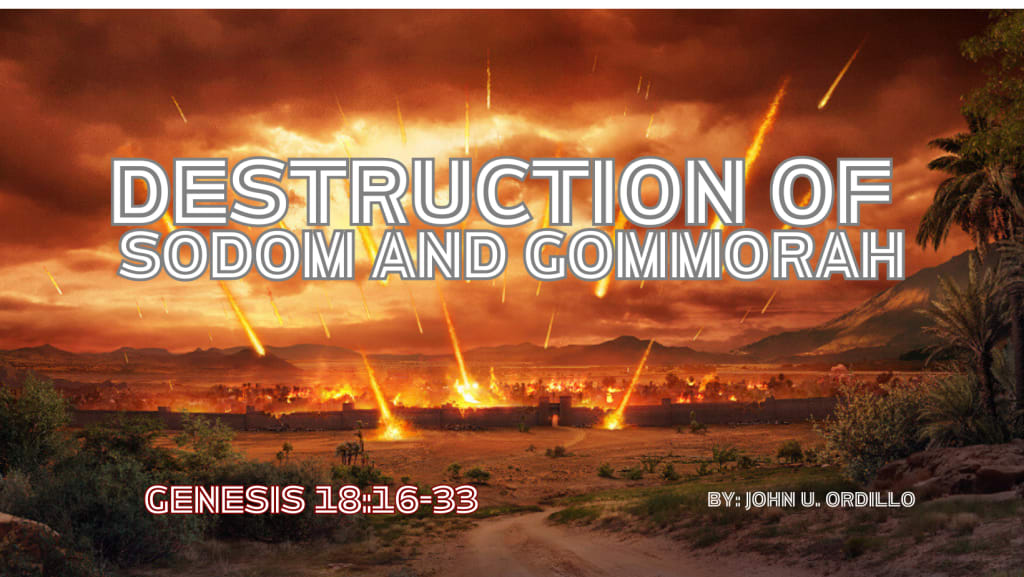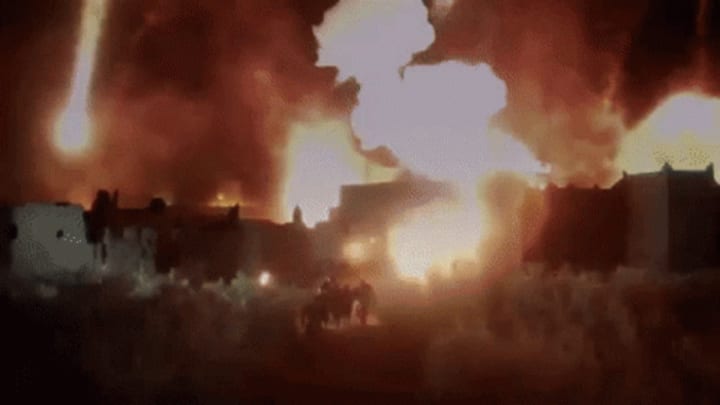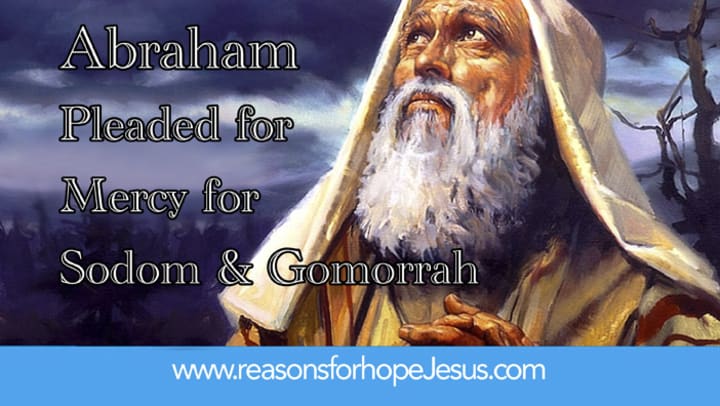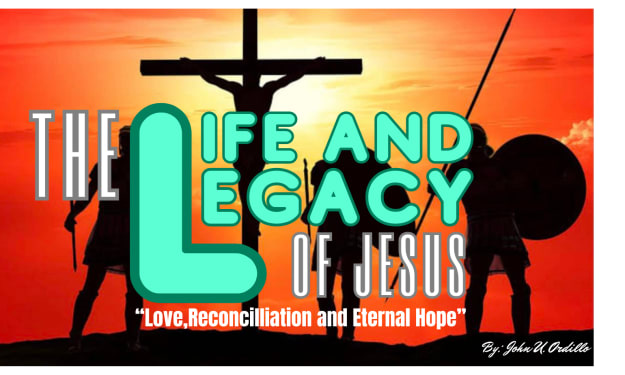DESTRUCTION OF SODOM AND GOMORRAH
"God's Willingness to Show Mercy"

THE DESTRUCTION OF SODOM AND GOMORRAH
Sodom and Gomorrah are two ancient cities mentioned in the Bible, specifically in the Book of Genesis. According to the biblical account, these cities were located in the Jordan River plain, near the Dead Sea. The story of Sodom and Gomorrah is well-known for its portrayal of God's judgment and destruction of these cities due to their wickedness.
The narrative goes as follows: Lot, the nephew of the righteous man Abraham (also known as Abram at that time), settled in the region and lived in Sodom. The inhabitants of Sodom were notorious for their sinful and immoral behavior, particularly acts of homosexuality and violence.
In Genesis 18-19, it is recorded that God sent two angels in the form of men to visit Abraham. During their visit, the angels revealed that they were on their way to Sodom to investigate the city's wickedness. Abraham, knowing that Lot was living in Sodom, pleaded with the angels to spare the city if they could find even ten righteous people living there.
The angels arrived in Sodom and were welcomed into Lot's house. However, the wickedness of the city soon became evident when a mob of men surrounded Lot's home, demanding that he send out his guests so that they could engage in sexual acts with them. In an attempt to protect his guests, Lot offered his two virgin daughters to the mob, but the angels intervened and struck the crowd with blindness.
Realizing the extreme wickedness of the city, the angels urged Lot and his family to flee and not look back. As they escaped, God rained down "sulfur and fire" upon Sodom and Gomorrah, destroying the cities and their inhabitants completely. Lot's wife, against the warning not to look back, turned into a pillar of salt.
The destruction of Sodom and Gomorrah is often interpreted as a symbol of God's judgment upon sin and wickedness. The story has been subject to various interpretations and debates, and it has also been used in discussions about morality, homosexuality, and the consequences of disobedience to God in different religious and cultural contexts.
The story of Abraham's pleading with the angels to spare Sodom and Gomorrah is found in Genesis 18:16-33. After the angels revealed their mission to Abraham, which was to investigate the wickedness of the two cities, Abraham began to intercede on behalf of the inhabitants of Sodom, particularly for his nephew Lot and his family who lived there.

HERE'S A MORE DETAILED ACCOUNT OF ABRAHAM'S INTERACTION WITH THE ANGELS
1. The Lord reveals His plans:
The story begins with the Lord visiting Abraham in the form of three men. Abraham shows great hospitality to these guests, offering them food and refreshments. During their visit, the Lord revealed to Abraham that He was going to investigate the outcry against Sodom and Gomorrah to determine if their wickedness was as great as reported.
2. Abraham's concern for the righteous:
Realizing the gravity of the situation, Abraham becomes deeply concerned for the fate of the righteous people living in Sodom, particularly his nephew Lot. He starts to intercede with the Lord on their behalf.
3. Negotiating with God:
Abraham begins his plea, asking the Lord if He would spare the cities if there were fifty righteous people found there. The Lord agrees that He would not destroy the cities if fifty righteous people were present.
4. Reducing the number:
Sensing the difficulty of finding fifty righteous people, Abraham continues to negotiate with God, gradually reducing the number. He asks if the cities would be spared for the sake of forty-five, forty, thirty, twenty, and eventually ten righteous people.
5. God's patient response:
Each time Abraham proposes a lower number, God patiently agrees that He would spare the cities for the sake of those righteous individuals.
6. End of the negotiation:
The negotiation ends with Abraham's request for mercy if ten righteous people were found in Sodom and Gomorrah. The Lord assures Abraham that He would not destroy the cities if even ten righteous people were present.
Despite Abraham's heartfelt pleas, the angels later find only Lot and his immediate family to be righteous, and they lead them out of the cities before the destruction comes. Unfortunately, they were unable to find the additional righteous individuals Abraham had hoped for, and consequently, Sodom and Gomorrah were destroyed by God's judgment.
The story of Abraham's intercession illustrates the biblical concept of God's willingness to show mercy and spare the wicked if there are even a few righteous individuals among them. It also emphasizes the importance of righteousness and the potential impact that even a small number of virtuous people can have on a community.

GOD'S WILLINGNESS TO SHOW MERCY
The biblical account of Abraham's intercession for the cities of Sodom and Gomorrah serves as a profound illustration of God's willingness to show mercy, even in the face of great wickedness. In the narrative, as God's judgment loomed over these sinful cities, Abraham stepped forward as an advocate, imploring the Lord to spare the inhabitants if even a small number of righteous individuals could be found among them.
Abraham's plea reveals the profound importance of righteousness in the eyes of God. He understood that the presence of just a few virtuous souls could make a world of difference, acting as a source of hope and transformation for an otherwise corrupt society. This powerful lesson challenges us to reflect on our roles within our communities.
In a world where it is easy to feel overwhelmed by the darkness and immorality that can sometimes surround us, the story of Sodom and Gomorrah reminds us that even a single person's commitment to righteousness can have a significant impact. We are not powerless in the face of wickedness; our actions and choices matter.
The call to righteousness extends beyond merely avoiding wrongdoing. It implores us to actively pursue virtue, compassion, and justice. It demands that we stand up against injustice, speak out for the oppressed, and strive to make a positive difference in the lives of those around us.
This story challenges us to be the ten righteous people in our communities, striving to be the beacons of light in a world that sometimes feels shrouded in darkness. It reminds us that our collective righteousness can influence the course of events, steer society toward goodness, and inspire others to join the noble pursuit of virtuous living.
Furthermore, the narrative also underscores the responsibility we bear for one another. Abraham's plea wasn't merely for his own family's safety; it was a plea for the entire city. It compels us to broaden our circle of concern beyond ourselves and our immediate loved ones. We are called to care for our fellow human beings, working together for the betterment of society as a whole.
In this ever-changing world, where moral values can sometimes seem ambiguous, the story of Sodom and Gomorrah presents us with a timeless message. It challenges us to be the catalysts of positive change, to embody righteousness, and to demonstrate unwavering compassion. It reminds us that the power to transform our communities lies within each of us.
As we reflect on the tale of Abraham's intercession, let us not be discouraged by the magnitude of the task before us. Instead, let it embolden us to take small steps towards righteousness, knowing that even the smallest acts of kindness and goodness can have a ripple effect, capable of transforming lives and reshaping our world.
May we be inspired by the courage of Abraham and the potential impact of righteousness, striving to create a more compassionate, just, and virtuous world, one virtuous deed at a time.
By: John U. Ordillo
About the Creator
JOHN U. ORDILLO
M.A. in Pastoral Administration Asian Seminary of Christian Ministries
Former Jr. Planner/Design Engineer Norconsult Telematics Saudi Arabia
Former Outside Plant Engineer Saudi Engineering Group International






Comments (1)
Thank you very much!